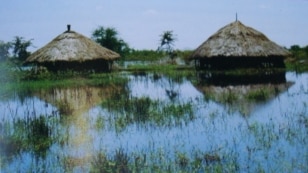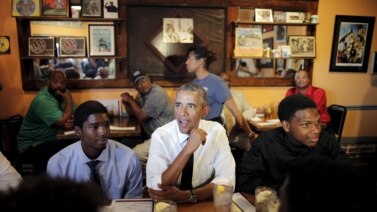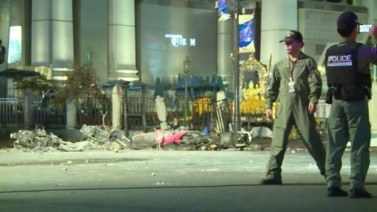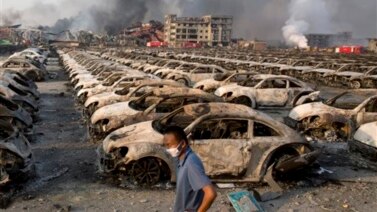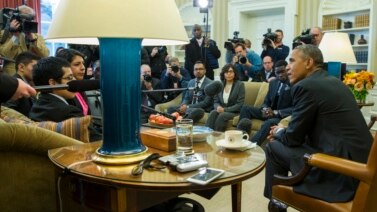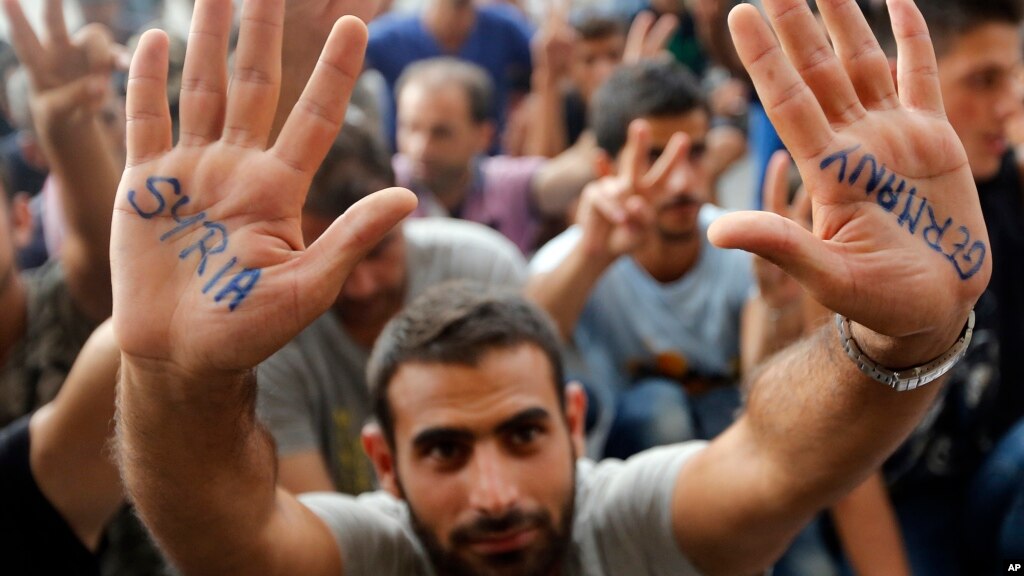
Migrants in Hungary who are trying to reach Western Europe are refusing to leave a train. Police stopped the crowded train heading for the border with Austria. They ordered all refugees on the train to leave and go to a nearby center. Groups of the foreign travelers shouted, “No Camp!” and refused to leave. Many of the families on the train said they were fleeing civil war in Syria. Witnesses say there has been pushing between migrants and police. Hungarian officials have barred reporters from the area in a town 40 kilometers from Budapest.
China says military will be reduced at anniversary parade
China’s President Xi Jinping has announced military cuts at a parade marking the 70th anniversary of Japan’s surrender in World War Two. President Xi spoke at the huge military parade in Beijing’s Tiananmen Square. He said China would cut its troops by 300,000, or more than 10 percent, from the world’s largest military. Officials said the troop cuts would be completed by 2017.
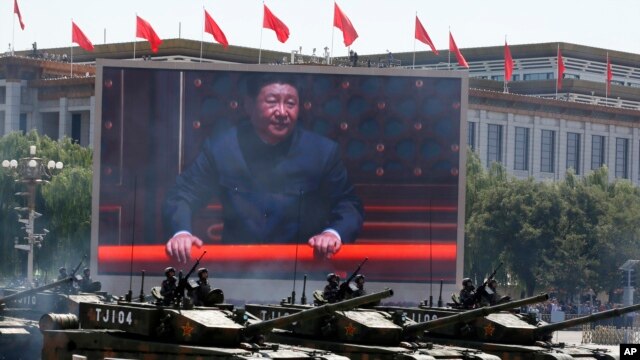
The event included 12,000 troops and many new weapons not seen by the public before. Among the weapons were what Chinese media called “carrier killer” missiles.
Talks between South Korea, China and Japan announced
South Korea, China and Japan have announced joint talks in October or November in an effort to reduce tensions between the nations. A statement from the office of South Korean President Park Geun-hye said President Park and China’s president Xi Jinping agreed to three party talks to support peace in the area.
The meeting is expected to take place in South Korea. President Park was one of the few U.S. allies to attend the Chinese anniversary military parade.
Iranian leader says parliament should decide nuclear deal
Iran’s Supreme Leader Ayatollah Ali Khamenei has express support for a vote in Iran’s parliament on the nuclear deal Iran agreed to with six world powers. The Iranian leader said he would leave it to lawmakers to decide whether to approve or reject the deal.
The U.S. Congress is preparing to debate the deal by the middle of September. Thirty-four senators have expressed support for the deal. Critics say it does not do enough to prevent Iran from developing a nuclear weapon.
Guatemala’s president resigns
Guatemalan president Otto Perez Molina has resigned after being connected to a corruption case. A spokesman said Mr. Perez Molina offered his resignation after a judge issued an order to have him detained for questioning. Guatemala’s lawmakers removed legal immunity from the president Tuesday.
Thirteen million children out of school in Middle East, N. Africa
The United Nations says conflict in the Middle East and North Africa are keeping more than 13 million children in nine countries from attending school.
A UNICEF report released Thursday said violence in the area has reached "new levels of destructiveness and horror." It said children are being exploited and attacks have damaged or destroyed schools. The report adds that refugees and fighters are using schools as shelters and routes to school are considered too dangerous.
Words in the News
migrant(s) – n. a person who travels from one place to another especially to find work
immunity – n. special protection from what is required for most people by law

